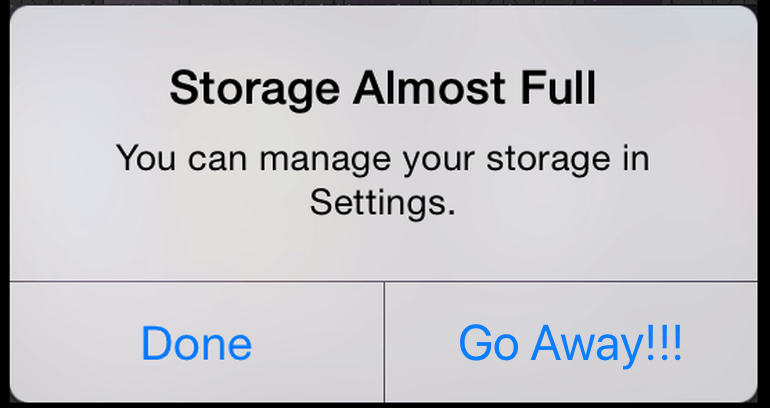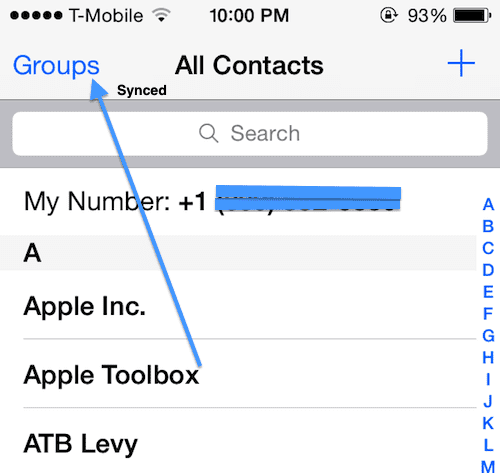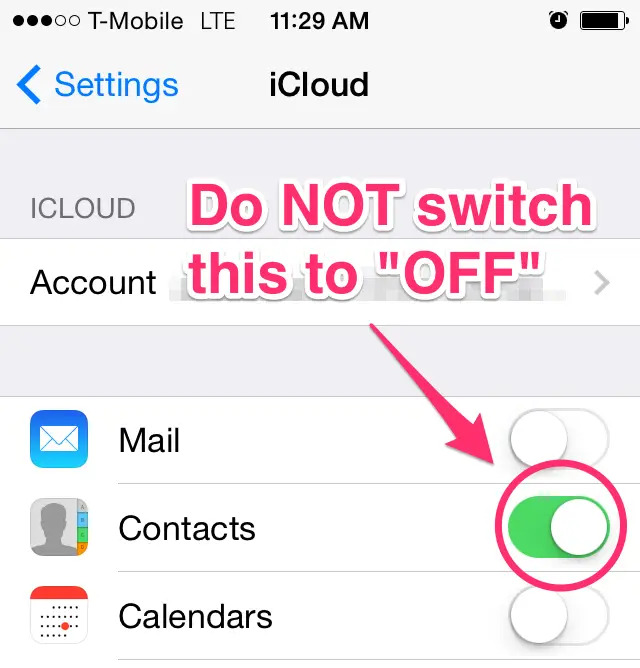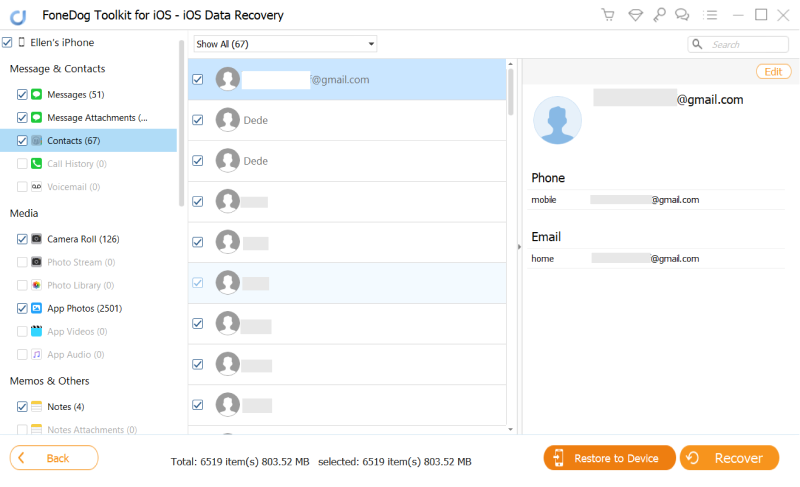

By Nathan E. Malpass, Last updated: September 26, 2023
Smartphones have become indispensable tools for staying connected with friends, family, and colleagues. However, what happens when your trusted iPhone starts acting unexpectedly, causing your contacts to vanish without a trace?
The phenomenon of iPhone deleting contacts randomly can be perplexing and frustrating, leaving users baffled as they attempt to grasp the underlying cause of this perplexing issue.
In this article, we delve into the enigmatic world of iPhone contacts disappearing on iPhones, exploring the potential reasons behind this occurrence and offering practical solutions to counteract the problem.
Whether you're a casual user or heavily reliant on your iPhone for business communications, understanding the nuances of this issue and learning how to tackle it head-on can save you from the frustration of losing vital contact information.
Join us as we navigate through the intricacies of this phenomenon and equip you with the knowledge you need to ensure your contacts remain secure and accessible on your iPhone.
Part #1: Top Reasons Why “iPhone Deleting Contacts Randomly”Part #2: Ways to Fix “iPhone Deleting Contacts Randomly” IssuePart #3: How to Recover Lost Contacts Due to iPhone Deleting Contacts RandomlyConclusion
The modern age of technology has granted us unparalleled convenience in our daily lives, allowing us to store our contacts digitally on our iPhones. However, there are times when this convenience can turn into a source of frustration as we discover that our iPhone has seemingly deleted contacts on its own, without any clear explanation.
While the exact causes might vary from one situation to another, several common reasons can shed light on why the phenomenon of "iPhone deleting contacts randomly" occurs. In this section, we'll explore these reasons, offering insight into the potential triggers behind this perplexing issue.
Syncing Glitches: The synchronization process between your iPhone and cloud-based services like iCloud, Google Contacts, or Microsoft Exchange can sometimes encounter glitches. These glitches might result in unintended deletions or changes to your contact list, leaving you puzzled as to why your contacts are disappearing.
Third-Party Apps: Some third-party apps that interact with your contact list might have bugs or compatibility issues that cause them to inadvertently delete or modify contacts. These apps might include contact management tools, backup utilities, or even social media applications.
Software Updates: While software updates are designed to improve your device's performance, they can occasionally introduce unexpected bugs. A new iOS update might lead to conflicts with your contact data, resulting in contacts being deleted or moved to a different location.
User Error: Human error can play a significant role in contacts going missing. Accidentally selecting the wrong options, mistakenly deleting contacts, or making incorrect settings changes can all lead to the disappearance of contacts.
Account Issues: If your iPhone is connected to multiple accounts, such as iCloud, Google, or Microsoft, issues with account synchronization or conflicts between accounts might lead to contacts being deleted from one account while remaining in another.
Data Corruption: Data corruption can occur due to various reasons, including hardware malfunctions, software glitches, or even physical damage to the device. When contact data becomes corrupted, it might result in deletions or errors in your contact list.
Security Measures: In some cases, security features on your iPhone might erroneously perceive certain contacts as potential threats and delete them to protect your privacy. While this situation is less common, it's worth considering if you've noticed a pattern of specific contacts disappearing.
Overcrowded Storage: When your iPhone's storage space is almost full, it can lead to various performance issues, including the deletion of contacts. The device may prioritize freeing up space by removing data it considers less essential.
Auto-sync with Email Accounts: If you have email accounts set up on your iPhone, the contacts associated with those accounts can be affected by the settings you've configured. Misconfigurations or synchronization issues with email accounts may cause contact deletions.
iOS Bugs and Glitches: iPhones run on complex software, and occasionally, iOS itself may contain undiscovered bugs or glitches that can affect your contacts. These issues are typically addressed in subsequent software updates.
Faulty iCloud Settings: If you rely on iCloud for contact storage and synchronization, incorrect settings or issues with your iCloud account may lead to the unintended deletion of contacts. It's important to verify your iCloud settings and ensure they are properly configured.
Restrictions and Parental Controls: If your iPhone is subject to restrictions or parental controls set up by another user (e.g., a parent or organization), these controls may limit your ability to access and manage contacts, resulting in deletions or modifications.
Malware or Unauthorized Access: Although rare on iOS devices, malware or unauthorized access to your iPhone can result in the deletion of contacts. It's essential to maintain strong security practices, including regularly updating your device and using secure passwords.
Contact Cleanup: In some cases, contacts may appear to be deleted, but they are actually being merged or cleaned up automatically by your iPhone's contact management algorithms. This can occur when multiple contacts share similar or duplicate information.
Network and Connectivity Issues: Temporary network disruptions or issues with your Wi-Fi or cellular connection can interfere with the synchronization of your contacts, potentially causing them to be deleted or temporarily unavailable.

Understanding the underlying reasons behind the phenomenon of "iPhone deleting contacts randomly" is the first step towards effectively addressing and preventing this issue. In the next section, we'll delve into practical solutions and strategies that can help you safeguard your contact list and prevent further deletions.
By gaining insights into both the causes and solutions, you'll be better equipped to maintain a reliable and intact contact list on your iPhone.
Now that we've explored the potential reasons behind your iPhone randomly deleting contacts, it's time to tackle the issue head-on with practical solutions and strategies to restore and protect your contact list. If you've experienced this problem, follow these steps to troubleshoot and resolve the “iPhone deleting contacts” issue:
Check Recently Deleted Contacts:
Open the Contacts app on your iPhone. Tap "Groups" in the upper-left corner. Make sure "All Contacts" is selected. Look for the "Recently Deleted" folder. If you find deleted contacts there, you can recover them by selecting and restoring them.

Restart Your iPhone:
Sometimes, a simple restart can resolve software glitches. Hold down the power button and slide to power off. Then, turn your iPhone back on.
Update iOS:
Outdated software can lead to various issues. Ensure your iPhone is running the latest version of iOS by going to Settings > General > Software Update and installing any available updates.
Check iCloud Settings:
If you use iCloud for contact synchronization, verify that your iCloud account is correctly configured. Go to Settings > [your name] > iCloud, and ensure "Contacts" is toggled on.

Reconfigure Email Accounts:
If you sync contacts with email accounts like Gmail or Exchange, review the account settings to ensure they are properly configured and sync settings are accurate.
Check Third-Party Apps:
Review the third-party apps on your iPhone, especially those related to contacts or backups. Update or reinstall apps that might be causing conflicts.
Reset Network Settings:
Connectivity issues can disrupt contact synchronization. To reset network settings, go to Settings > General > Reset > Reset Network Settings. Note that this will erase saved Wi-Fi passwords.

Disable Unwanted Contact Cleanup:
Your iPhone may automatically merge or clean up contacts. To disable this feature, go to Settings > Contacts > Contacts > Merge Contacts, and select "Off".
Scan for Malware:
Though rare on iOS, consider running a malware scan with a reputable security app to rule out any malicious software.
Contact Apple Support:
If none of the above solutions work and the issue persists, it's advisable to contact Apple Support or visit an Apple Store or authorized service center for further assistance. There could be a hardware or software problem that requires professional attention.
Regular Backups:
Ensure you regularly back up your iPhone using iCloud or iTunes. This way, you can restore your contacts if they are lost or deleted.
Maintain Ample Storage Space:
Keep your iPhone's storage space free to prevent performance issues. Delete unnecessary files and apps and manage your media library to ensure sufficient storage for contacts and other data.
By following these steps and implementing these solutions, you can address the issue of "iPhone deleting contacts randomly" and take proactive measures to prevent it from happening in the future. Remember that a combination of software adjustments, regular backups, and cautious usage can help safeguard your valuable contact information on your iPhone.
Losing valuable contacts on your iPhone due to unexpected deletions or random disappearances can be distressing. Fortunately, there are reliable data recovery tools available, such as FoneDog iOS Data Recovery, that can help you recover lost contacts and other important data.
iOS Data Recovery
Recover photos, videos, contacts, messages, call logs, WhatsApp data, and more.
Recover data from iPhone, iTunes and iCloud.
Compatible with latest iPhone and iOS.
Free Download
Free Download

FoneDog iOS Data Recovery is a powerful iPhone 15-supported tool and user-friendly software designed to recover various types of data that disappeared from the iPhone, including text messages, photos, videos, and more. It is compatible with both Mac and Windows systems and supports the latest iOS versions and iPhone models.
Deal with “iPhone deleting contacts” using FoneDog iOS Data Recovery:

Tips for using FoneDog iOS Data Recovery:
FoneDog iOS Data Recovery is a reliable solution for recovering lost contacts due to "iPhone removing contacts randomly." By following the steps outlined above and using this software, you can effectively retrieve your missing contacts and restore your contact list to its previous state. Always remember to keep your iPhone and its data backed up regularly to avoid data loss in the future.
People Also ReadLearn to Fix: Lost All Contacts on iPhone Problem 2023How to Import Contacts from iPhone to Mac in 2023?
The phenomenon of "iPhone deleting contacts randomly" can be a perplexing and frustrating experience for users who rely on their smartphones for seamless communication. In this article, we've explored the various aspects of this issue, from understanding the potential reasons behind it to practical solutions for recovery and prevention.
Finally, we explored the process of recovering lost contacts using FoneDog iOS Data Recovery, a reliable data recovery tool designed to retrieve deleted data from iOS devices. By following the outlined steps, you can successfully recover your missing contacts and safeguard your vital contact information.
In conclusion, while the issue of "iPhone removing contacts randomly" can be frustrating, it is not insurmountable. With a combination of understanding the potential causes, implementing preventive measures, and using trusted data recovery tools when needed, you can ensure that your contact list remains intact and accessible on your iPhone.
Remember to regularly back up your device and stay vigilant to maintain the integrity of your valuable contact information in the digital age.
Leave a Comment
Comment
iOS Data Recovery
3 Methods to recover your deleted data from iPhone or iPad.
Free Download Free DownloadHot Articles
/
INTERESTINGDULL
/
SIMPLEDIFFICULT
Thank you! Here' re your choices:
Excellent
Rating: 4.6 / 5 (based on 97 ratings)